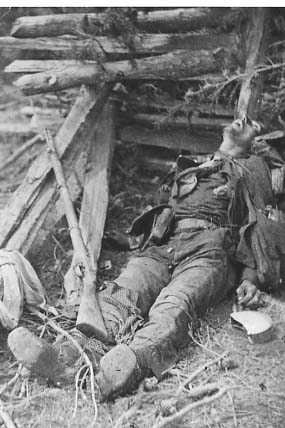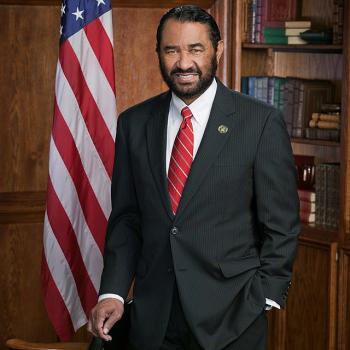
It was around 20 years ago.
My mother got a call from a man who introduced himself as her cousin from Tennessee. He had spent considerable time tracking down our branch of the family and wanted to make her acquaintance.
He and Mama had a nice visit. She introduced him to my Aunt Mary and they got caught up on the family doings for the past 130 years. That’s how long it had been since our branch of the family had talked with their branch of the family.
I’d heard stories, but the whole thing seemed to me more legend than fact. Then, I met him and later that year Mama and my youngest son and I made the trek back to Tennessee to meet the family we didn’t know.
The family resemblance between them and us was striking, as were the similarities in attitude and … I don’t quite know how to describe it … similarities in that sort of rhythm and meter that undergird a person. We were alike in ways that defy words but are no less real for the lack of precise description.
I stood at the grave of Rebecca Rogers, the woman who bore the name that had been handed down to me. She was buried on a mountain top in southeastern Tennessee early in the 19th century. My family had migrated into the area during the presidency of Andrew Jackson. It turned out that the stories I’d been told by my grandmother were all true.
The thing that separated that branch of the family from ours was a national dispute that we refer today as the Civil War. There are no slaveowner in my background. The whole family, all of them, had opposed slavery.
But when it came to the necessity of taking up arms, they split. Almost all of them went with the South. They didn’t do this because they owned slaves or held with slavery. It was more elemental than that.
They went, not with the “cause” of the South, but with their kin and neighbors; their people. Disagreeing about slavery stopped at the place where that disagreement meant pointing a gun at people they knew and loved. The plain logic of tribal loyalty roped them to a cause they didn’t believe in, but, as war wounds scarred their psyches, they came to identify with vehemently.
I am descended from the lone refusers who could not, would not, did not go with the South. My great, great, great I don’t know how many greats grandfather and grandmother lived in southeastern Tennessee, a few miles over the Georgia border. They were born and bred in rebel territory.
I don’t know what anguish they suffered making the decision. I only know that it was a decided thing between them. They went with the North.
It was their religious faith that led them. Slavery was a sin. Slavery was an outrage before God. I don’t think, from what I’ve heard, that they had any real notion of civil and human rights as we expound on them today. It was simple, rock-ribbed Methodist Christianity, and a convinced belief in the sovereignty of God Almighty that led them.
Slavery was a sin. So my many greats grandparents went against everything and everyone they knew to join up with strangers from another part of the country. My many greats grandfather put on a blue uniform to fight against his own kith and kin while my many greats grandmother stayed behind with their babies.It was a dangerous and lonely decision for all of them.
I’ve heard stories that, based on how well all the other stores have checked out, I believe, of the abuse that my many greats grandmother endured living in that Southern region while her husband was away fighting for the North. Those were different times. She wasn’t raped. So far as I know, she wasn’t abused physically in any way.
But she lived on a farm with little children and neighbors who despised her and fed herself and her family with the food she raised. Rebel soldiers tore up her house, killed her livestock and despoiled the food she had stored in ways too disgusting to write about here.
I still remember the anger in my grandmother’s voice when she told me about it. My many greats grandmother’s anger and despair at the loss of food with babies to feed echoed down to me through the hundred years that separated the event from the telling.
I don’t know how she survived. But survive she did, and when the war was over, my grandparents left the South, never to return.
Contact between the two sides of the clan was severed with a cut as sharp and final as amputation. It wasn’t until 2000 that we reconnected, and then it was only for a short time.
I’m telling this story now because I think it may be a little bit pertinent to what’s happening in our world today. The Civil War is 160 years in our past, but we still seem to be re-fighting it, even today.
I understand why African Americans, descendants of slaves, are angered by looking around and seeing statues honoring men who fought to preserve slavery. I get why that would rankle and disgust them.
I can understand why the poetry and pathos of a “lost cause” which so many folks attach to the Southern rebellion would register on them as an affront to their humanity. The “lost cause” that poetry and pathos refers to was slavery.
Slavery is an evil and brutal form of labor management that reduces human beings to chattel. It still exists as a legal entity in parts of the world today.
People are trafficked, moved around and kept in slavery to be used as prostitutes and workers. There are other kinds of slavery, as well. Wage slavery can be and often is a kind of indentured servitude that serves as present-day slavery.
Most black Americans are descendants of slaves. Some white Americans are descendants of slave owners.
This isn’t slavery that is buried under millennia of forgetfulness. It is slavery that existed in our country just a few generations ago. It may have passed out of living memory, but it still has strong echoes in our corporate memory, our social fabric and our unconscious attitudes toward one another.
It is slavery that many people have chosen to romanticize with talk of “lost causes” and by the use of statues and public displays honoring those who fought to keep people enslaved. Slavery, and people who were so committed to it that they were willing to destroy America rather than give it up, is what those statues memorialize.
In truth and fact, there was nothing romantic about the Civil War. It was a mean, hard-fought fight that took the lives of more Americans than all the rest of the wars we’ve fought combined. The South fought for the ignoble cause of slavery. The North engaged in a ruthless war against civilians. Sherman’s March to the Sea was no more romantic than slavery itself.
I, personally, don’t have any great attachment to statues of men who fought against this country. I do not care all that much if we take down the remembrances of men who tried to destroy the United States of America so that they could keep on buying and selling human beings and “owning” them as if they were things rather than people.
My many greats grandparents were right. Slavery is an abomination in the sight of God. I don’t mind taking down the statues of men who fought against America and tried to destroy it so that they could continue owning other human beings. I don’t think they should have been put up in the first place.
The Civil War is over. This country survived it. Now it is time for us to make good on the promises in the Declaration of Independence and the Constitution.
As a Christian, I feel that it is time for us to do our part to bring power to the words that there is no slave nor free, Greek nor Jew, male nor female, for all are one in Christ Jesus.
Those words are the basis of the great promises in the foundational documents of our nation. They are the leaven that has powered the rise of our belief in the worth of individual human beings through the two millennia since St Paul wrote them. Those words inform our good laws that are the pride of Western Civilization.
Just as in the day of my many greats grandparents, it is our job, no matter the cost, to make those words true.












